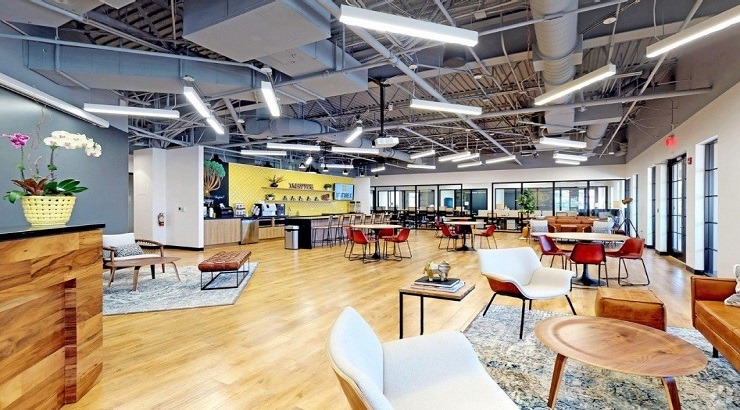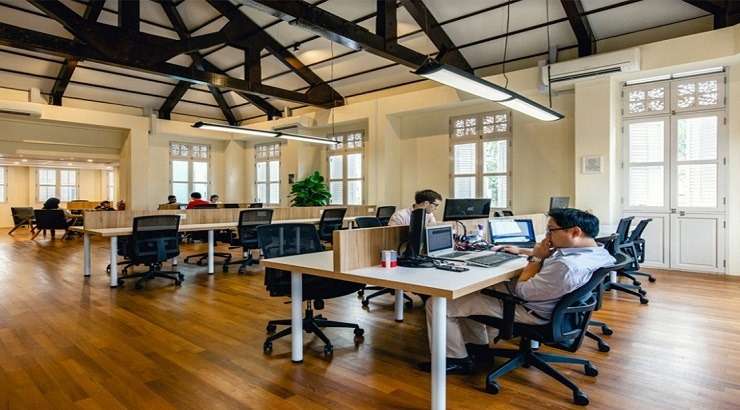Co-working is one segment which has witnessed steady growth over the years and has proven to be a viable concept as far as office space is concerned. The business of co-working is gaining traction in the Indian market and industry players feel that MSMEs and smaller start-ups are benefiting the most from this new trend. Co-working is not just about increased efficiency and lower costs; it also brings a shared collaboration/angle into the equation which is equally valuable.
Of course, there is always the fun prospect of getting lost in exciting conversations with fellow start-up founders/entrepreneurs and employees who thrive in challenging environments while benefiting from synergies relating to multi-disciplinary expertise as well. In a co-working space, many people don’t even have to venture out to look for expertise and assistance in fields that they are not comfortable with. That is the beauty of shared working spaces.
Why co-working is here to stay
Commercial real estate has a major impact on the overall performance of the realty business in India. In the office space category, co-working is a major disruptor and with the start-up boom, more companies are attuned towards utilizing these spaces instead of spending a bomb on hiring a big office space and meeting all associated expenses. Co-working is clearly a trend for the long haul as indicated by these pointers:
- Co-working continues to be a functional and innovative solution for start-ups and MSMEs who are facing issues in setting up operational workplaces in their nascent stages or the trial period as many call it.
- Over the last 5 years, 350+ co-working operators have been looking to tap into the growing demand for such spaces as per reports.
- Experts feel that multiple MNCs and other corporates are also looking to cash in on India’s immense future growth prospects. However, they face issues with regard to setting up initial places of work as well. Co-working spaces are fast becoming great solutions for such companies as well.
- Co-working offices come with all necessary amenities and infrastructure which includes technology and IT based infrastructure, serving as a great tool for pilot projects in India.
- There are co-working players who are now working on integrating leading operators of such spaces in single platforms to enable companies to choose the best fit based on the budget and other parameters.
- Several studies have also highlighted that globally, average seat utilization at these spaces is close to 60% which excludes seats which are vacant and meeting room utilization levels are lower at 30%.
- Reports also highlight that over the 3-4 years, office rentals will keep growing in the Indian market and co-working demand will grow as a result.
- Co-working operators are expected to lease anywhere between 6-10 million sq. ft. of space by the year 2020 across Tier-1 and Tier-2 Indian cities.
- In the first 8 months of last year, 2 million sq. ft. of space changed hands in the co-working space which means more room for growth.
- Operators are reportedly planning to lease a further 8-9 million sq. ft. with key markets like Mumbai, Gurgaon and Bangalore expected to account for a lion’s share of this tally.
- Small and medium enterprises are taking to the flexible co-working environment like fishes to water meaning that it has been a seamless transition.
- Experts highlight advantages of co-working spaces including lower costs, flexible working, utilization of shared knowledge, resources and tools along with innovative and creative thinking. Start-ups and new entities can save hugely on real estate expenses.
- Co-working spaces are also ideal solutions for self-employed professionals, digital workers, entrepreneurs and freelancers.
- Cities which have flourishing service sectors will continue witnessing the growth of co-working spaces over the next few years as opined by experts.
Real estate markets to benefit greatly from co-working spaces
The rising number of co-working operators naturally means more demand for office space and higher revenues for real estate developers in the office/commercial space category. Additionally, the establishment of co-working spaces in prominent localities will also spark residential real estate demand in nearby areas as per reports. New companies desire agile operations without the hang of costly real estate and other frills. Co-working has emerged as the best possible solution in this regard. Space shortage in prime office zones in major cities is a problem that is solved by this sector along with increasing office rentals. These are usually plug and play mechanism driven offices which help small businesses save greatly on operating costs.
Even large companies can rapidly deploy multiple teams throughout the country via these spaces while offering flexible working environments at comparatively lower costs. On the flipside, employees get all necessary amenities and top class infrastructure in the bargain. Several high-tech, lifestyle and wellness based components are also being integrated into co-working solutions by operators which is a major plus point to say the least. Several landlords are now developing these flexi workspaces as per studies. They are entering into partnership with service providers on the long-term lease/revenue sharing business model.
There are several top players in the space today including Awfis, Cowrks, TEC, Spaces, Innov8, 91 spring board, Workenstein and WeWork who are consistently scaling up office space owned by them in India. All of this indicates a healthy demand channel for real estate developers. Consolidation is also taking place in this category with Daftar India having been acquired by AltF Coworking in Noida and IShareSpace being acquired by One Co. Work. Once the co-working segment reaches a certain maturity level, there will be more consolidation to come as forecasted by experts.
What to expect in the near future
The co-working sector will keep witnessing higher consolidation due to the need for many operators to maintain profitability and streamline business models. Co-working spaces will see skyrocketing growth in key cities like Mumbai, Bangalore and Gurgaon since there is good infrastructure and scope for start-ups and smaller companies in these cities. Hyderabad may also witness rapid development in this space since tech behemoths like Google, Apple and Amazon have already acquired big office spaces here, thereby leading to a flurry of new opportunities for diverse start-ups and MSMEs.
Tier-2 cities which have a higher number of technology companies like Chandigarh, Pune, Jaipur, Kochi and Ahmedabad are also expected to witness the rapid development of co-working spaces. These are also increasingly becoming popular amongst e-commerce and fintech companies along with MSMEs and technology start-ups. Co-working spaces will also be used as on-site offices by companies with operations in multiple cities and will also be used as transitional spaces by companies until they find their desired offices in a particular city. Real estate developers are poised to benefit majorly from the huge demand for these spaces.

Realty players like Embassy Group, K Raheja and RMZ Corp are poised to jump onto the bandwagon and many others will follow suit. There will be more alliances between real estate developers, co-working operators and investors in the future for setting up these spaces. In the distant future, several Indian and global co-working operators are expected to have a significant presence in central business districts of top Indian cities and also in the suburban business hubs as per reports and studies. On that note, here’s to working together with gusto. Remember to love thy neighbour (although not literally enough to cause discomfort!) and cooperate with fellow workers.






































